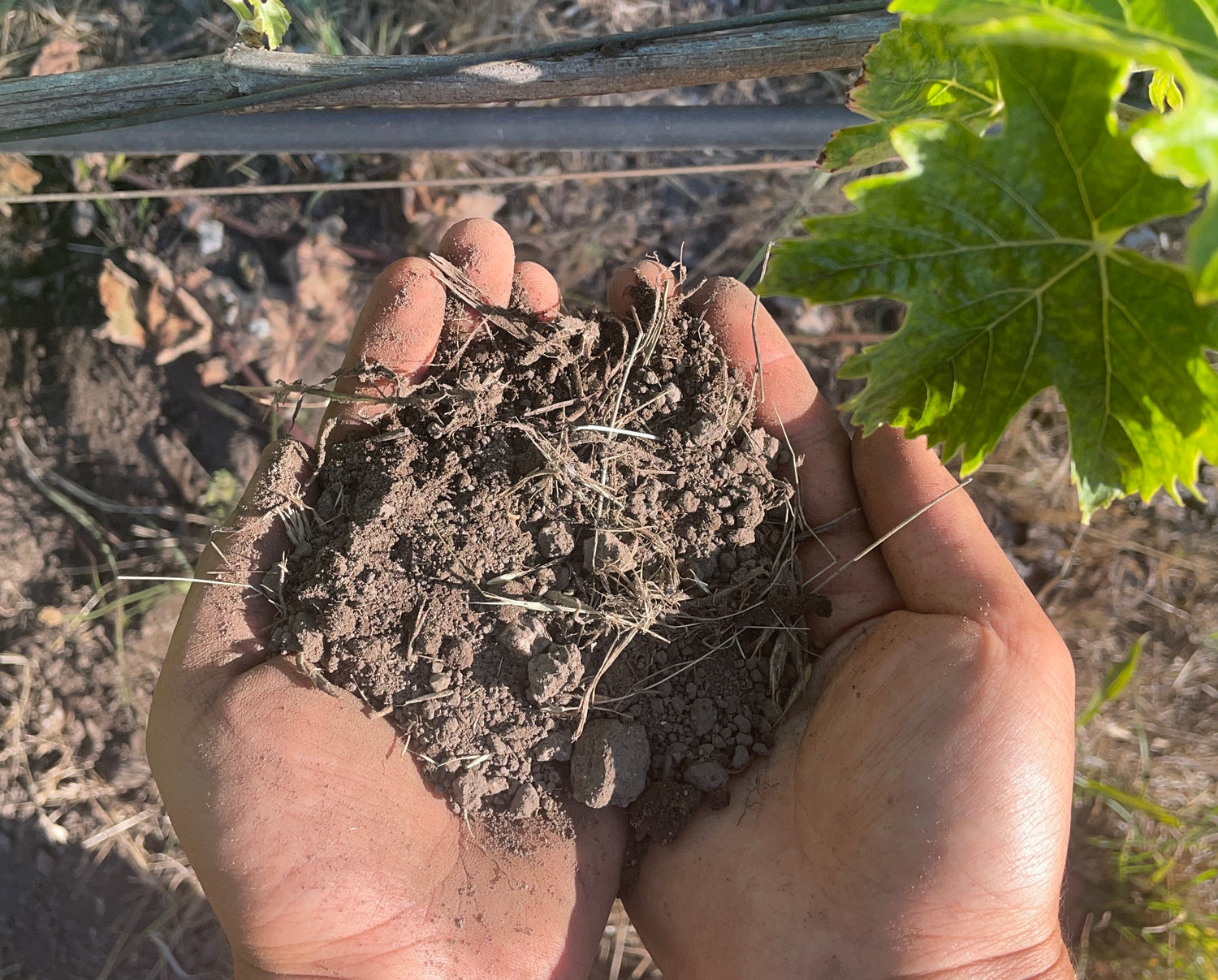Heavy metal contamination in soil poses significant risks to human health and agricultural productivity, affecting millions of properties across diverse geographical regions. Understanding soil contamination levels through professional testing is essential for safe gardening, farming, and land management practices.
Soil Health and Heavy Metal Contamination: Professional Testing and Analysis Services
Heavy metals like lead, cadmium, and arsenic can contaminate soil through industrial activities, pesticides, and urban runoff, requiring professional soil testing to identify contamination levels and guide appropriate remediation strategies.
Soil health forms the foundation of successful gardening, farming, and property management. Heavy metals such as lead, cadmium, and arsenic can contaminate soil, posing risks to human health, plant growth, and environmental ecosystems.
Heavy metals are naturally occurring elements that can accumulate in soil from natural geological processes or human activities, including industrial operations, pesticide application, and urban runoff. These contaminants may affect plants, animals, and humans through ingestion, inhalation, or skin contact. The U.S. Environmental Protection Agency documents that prolonged exposure to heavy metals can lead to serious health issues including neurological damage, kidney dysfunction, and increased cancer risk.
At Alluvial Soil Lab, we provide comprehensive soil testing services to identify heavy metal presence and concentration levels, supporting informed decisions about remediation strategies, crop selection, and land use planning. Our soil testing service helps property owners understand contamination risks and implement appropriate management strategies.
Our Soil Testing Services
Alluvial Soil Lab offers soil testing services for heavy metal contamination, ensuring accurate results and reliable data interpretation. The EPA's guidelines on lead testing emphasize the critical need for precise analysis to avoid incorrect results that could lead to unnecessary remediation costs or inadequate protection measures.
Our soil testing service provides clients with comprehensive analysis of heavy metals commonly found in contaminated soils. We help identify contamination levels that may pose risks to human health or plant growth.
The EPA establishes screening levels for various heavy metals in residential soils, including 400 parts per million (ppm) for lead, providing benchmarks for risk assessment that guide our interpretation and recommendations.
Understanding Your Soil Test Results
Our soil testing service provides detailed analysis with clear interpretation of results. We reference EPA guidelines and peer-reviewed scientific studies to ensure accurate risk assessment and management recommendations.
The Agency for Toxic Substances and Disease Registry provides detailed information on health effects of heavy metals, which we incorporate into our risk assessment process to provide clients with comprehensive understanding of potential impacts.
Our expert team provides specific recommendations for remediation strategies based on your individual results and site conditions. Common approaches may include organic matter additions to bind metals, phytoremediation using specific plants, or biochar amendments to reduce metal bioavailability.
Our Soil Testing Process
Alluvial Soil Lab provides a systematic soil testing process to ensure accurate and reliable results:
- Order Testing Service: Contact us to order our comprehensive heavy metal soil testing service, which includes detailed sampling instructions and prepaid shipping materials.
- Sample Collection: Follow our provided guidelines to collect representative soil samples from your property, ensuring proper sampling techniques for accurate analysis.
- Laboratory Analysis: Ship samples using the prepaid shipping materials for comprehensive heavy metal analysis.
- Detailed Reporting: Receive your comprehensive report within approximately two weeks, including contamination levels, risk assessment, and specific management recommendations.
This standardized process ensures consistent, reliable results that support informed decision-making about soil management strategies and risk mitigation approaches.
Common Heavy Metals in Our Testing Service
Our soil testing service analyzes soil for the heavy metals most commonly encountered in contaminated sites. Based on EPA data and research from authoritative sources, our testing service covers the following eight key contaminants:
- Lead (Pb): Sources include lead-based paints, old plumbing systems, and industrial activities. Can cause developmental delays and neurological issues, particularly in children.
- Cadmium (Cd): Found in phosphate fertilizers and industrial waste. Can cause kidney damage and bone disorders according to World Health Organization reports.
- Arsenic (As): Originates from mining operations and pesticide use. Associated with skin and lung cancer risks as documented by the Agency for Toxic Substances and Disease Registry.
- Mercury (Hg): Results from industrial processes and coal combustion. Causes neurological impairment according to EPA documentation.
- Copper (Cu): Present in fungicides and industrial discharges. Can harm beneficial soil microorganisms essential for healthy soil ecosystems.
- Nickel (Ni): Associated with metal refining processes. Can cause skin allergies and respiratory issues.
- Zinc (Zn): Found in fertilizers and industrial discharges. Disrupts soil ecosystems when present in excessive concentrations.
- Chromium (Cr): Originates from metal plating and leather tanning operations. Certain forms are carcinogenic according to EPA assessments.
Our Contamination Management Recommendations
When our soil testing service reveals elevated heavy metal levels, we provide specific, science-based recommendations for effective risk reduction and soil health improvement. Our approach aligns with EPA recommended practices for soil amendment and remediation.
Our management strategies may include:
- Soil Amendments: Recommendations for organic matter, compost, or biochar additions to reduce metal bioavailability and improve soil structure.
- Phytoremediation: Guidance on using specific plants like sunflowers to naturally extract heavy metals from contaminated soil through biological processes.
- Risk Mitigation: Strategies to reduce exposure risks, including appropriate plant selection and land use modifications.
- Monitoring Plans: Recommendations for ongoing soil monitoring to track remediation effectiveness and ensure continued safety.
In cases of severe contamination, we may recommend soil removal or replacement, particularly for lead-contaminated urban soils where health risks are significant.
Importance of Regular Soil Testing
We recommend regular soil testing services, as land use changes, industrial activities, and natural processes can alter soil composition over time. The USDA Natural Resources Conservation Service emphasizes the importance of soil health assessment for sustainable land management.
Our soil testing services help identify emerging contamination issues before they become serious problems, supporting proactive management and long-term soil health maintenance. Regular testing intervals depend on site-specific factors, which we help clients determine based on their individual circumstances.
Why Choose Alluvial Soil Lab
Our comprehensive heavy metal soil testing services provide:
- Accurate Analysis: Reliable soil testing results for informed decision-making
- Expert Interpretation: Our soil scientists provide clear, actionable recommendations based on your specific results
- Comprehensive Reporting: Detailed reports include contamination levels, risk assessments, and management guidance
- Ongoing Support: Professional consultation to help implement recommended remediation strategies
- Convenient Service: Simple ordering process with prepaid shipping and comprehensive reporting
Conclusion
Professional heavy metal testing through Alluvial Soil Lab supports the maintenance of healthy and safe soil environments. Our comprehensive analysis provides essential data to guide informed land management decisions and protect human health.
Understanding heavy metal contamination levels in your soil is crucial for safe gardening, farming, and property management. Our certified laboratory testing, expert interpretation, and practical recommendations help ensure your soil meets safety standards for its intended use.
Contact Alluvial Soil Lab today to schedule your comprehensive heavy metal soil testing and receive expert guidance for maintaining healthy, safe soil conditions on your property.
Sources
- U.S. Environmental Protection Agency. Soil Contamination. https://www.epa.gov/superfund/soil-contamination
- U.S. Environmental Protection Agency. Lead in Soil Testing. https://www.epa.gov/lead/lead-soil-testing
- U.S. Environmental Protection Agency. Ecological Soil Screening Level Metal Contaminants. https://www.epa.gov/chemical-research/ecological-soil-screening-level-metal-contaminants
- U.S. Environmental Protection Agency. Metals Environmental Assessment. https://www.epa.gov/caddis/metals
- Agency for Toxic Substances and Disease Registry. Toxicological Profile for Arsenic. https://www.atsdr.cdc.gov/toxprofiles/tp2.pdf
- World Health Organization. Cadmium Fact Sheet. https://www.who.int/news-room/fact-sheets/detail/cadmium
- U.S. Environmental Protection Agency. Health Effects of Mercury Exposure. https://www.epa.gov/mercury/health-effects-exposures-mercury
- USDA Natural Resources Conservation Service. Soil Health Assessment. https://www.nrcs.usda.gov/conservation-basics/natural-resource-concerns/soils/soil-health/soil-health-assessment












